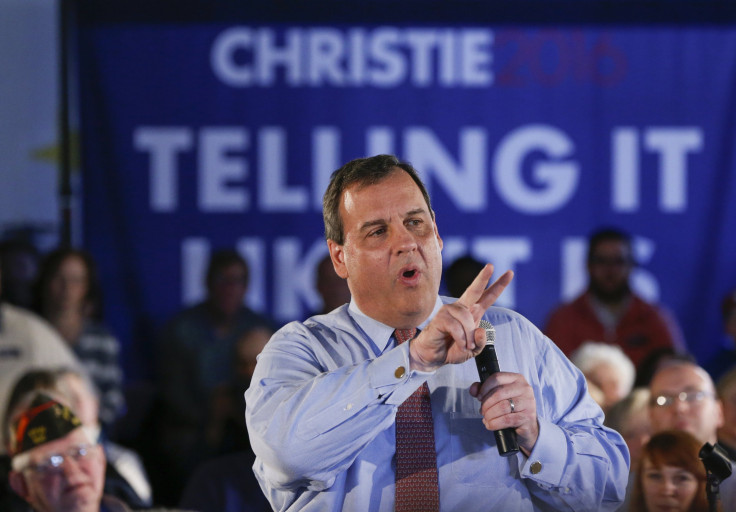Chris Christie Administration Will Cut Pension Investments In Hedge Funds After Fee Controversy

Governor Chris Christie’s pension officials on Wednesday signed off on a major divestment of hedge funds — a move that is expected to save taxpayers and retirees tens of millions of dollars in fees that had been flowing to Wall Street. The decision caps an intensifying campaign against the hedge fund investments by groups representing retirees.
The campaign was prompted by an International Business Times investigative series that first spotlighted the skyrocketing fees.
At a meeting of the Christie-controlled State Investment Council, pension officials cut in half the amount of state pension money that will be allocated to hedge funds, according to a press release from the New Jersey state AFL-CIO. That $3 billion reduction was part of an overall reduction of pension investments in higher-risk “alternative investments” that generate big fees, but whose returns have in many cases failed to keep pace with low-fee stock index funds. In all, the reduction in hedge fund investments is expected to save more than $120 million in fees next year, according to the labor federation, whose retiree members rely on the pension system.
“I’m glad both labor representatives and administration representatives have come together to significantly cut hedge funds and reduce the outrageous level of Wall Street compensation that are negatively impacting our pension portfolio,” said New Jersey State AFL-CIO President Wowkanech. “However, even with today’s action by the SIC, New Jersey is still over-invested in hedge funds when compared to the average of all states and additional reforms must be acted upon. But for today, this is a significant move in the right direction.”
After a decade of public pensions pumping more retiree money into alternative investments, new questions have recently been raised about the fees and returns generated by the strategy. Major pension funds in California and New York have reduced their investments in hedge funds.
Back in 2014, before the national debate over pension fees had intensified, IBT first began reporting on how Christie’s administration had significantly increased the amount of pension money flowing to high-fee alternative investment firms. The two-pronged year-long series explored the politics of pension investments as well as the revenue implications of the investment shift.
Under Christie, pension investments flowed to politically connected firms whose employees had delivered campaign donations to Christie-linked political groups. IBT also documented how Christie’s political team was in contact with the governor’s top pension adviser. That adviser’s private firm concurrently invested in a fund he had directed public pension money into. The adviser subsequently resigned after the state’s largest labor federation filed an ethics complaint against him.
The shift into alternative investments effectively cost New Jersey billions in returns that it would have received by investing the same amount of money into low-fee stock index funds. Fees skyrocketed to more than $700 million a year, IBT reported, but Christie administration officials employed an accounting change in pension disclosure documents that effectively obscured the fee increase, just as public outrage over the fees was intensifying.
Pension trustees demanded a formal forensic investigation of the fees, legislative hearings into the situation and now a public argument amid the state’s upcoming 2017 gubernatorial election.
In May, former ambassador and Goldman Sachs executive Phil Murphy, a Democrat likely running for governor in 2017, published an op-ed excoriating pension officials for pumping money into alternative investments. “Reducing our pension funds' reliance on alternative investments would help us save tens of millions in fees,” he declared.
That prompted an op-ed response from Tom Byrne, a Democratic financial executive appointed by Christie to chair the state investment council.
“Polling data no doubt shows that attacking Wall Street fees is good politics,” wrote Byrne, who is reportedly considering his own gubernatorial bid. “We don't invest in alternatives because we enjoy criticism; we do so after hours of review internally and with outside experts to optimize expected returns."
© Copyright IBTimes 2024. All rights reserved.






















